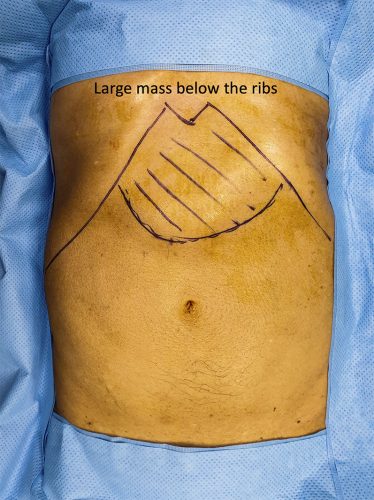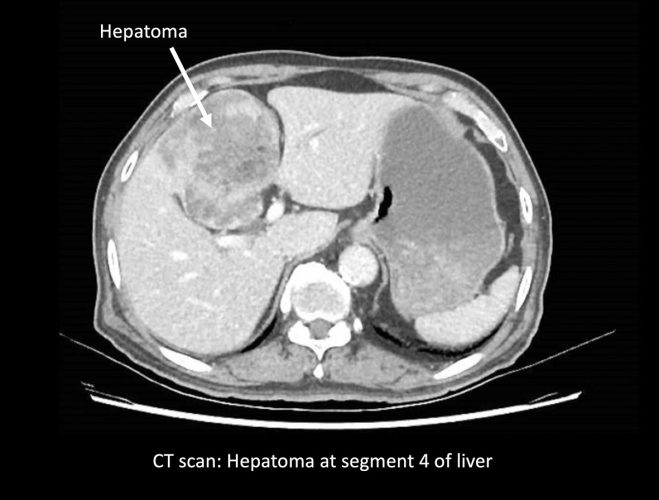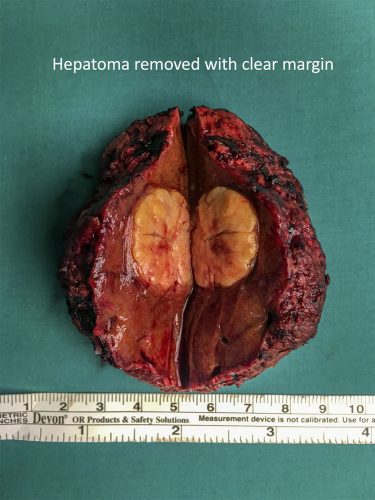Liver Cancer
Our liver is a vital organ that helps our body perform various functions, including:
- Collecting and filtering blood from the intestines
- Processing and storing nutrients from the intestines
- Changing the nutrients stored into energy
- Making bile, needed for digesting fat
- Making substances that help the blood to clot
Liver cancer is a life-threatening condition wherein cancerous tumours develop in the liver. Liver cancer can be of two types – primary and secondary. Primary liver cancer develops directly in the liver, while secondary liver cancer develops elsewhere in the body and spreads to the liver.
The two common primary liver cancers are hepatocellular carcinoma (HCC) and cholangiocarcinoma. If identified and diagnosed in the early stages, liver cancer can be treated like any other cancer.
Often, early liver cancer shows little to no symptoms, and it is usually identified incidentally when patients undergo their routine health check or identified when patients undergo scans for unrelated conditions.
Patients with more advanced cancer will present with the following findings:
- A lump beneath the ribcage
- Pain in the right side of the abdomen or near the right shoulder
- Jaundice
- Dark-coloured urine
- Unexplained weight loss and loss of appetite
- Nausea
- Fatigue

Liver cirrhosis and fatty liver are known risk factors for getting HCC. Hepatitis B viral infection, chronic alcohol drinking, and fatty liver are the common causes that lead to liver cirrhosis.
Treatment:
Prior to deciding the appropriate treatment for you, the doctor will have you undergo investigations to identify the cancer and its severity. The common investigations include blood tests and scans (e.g., ultrasounds, CT scans, and MRIs) to confirm the stage of the cancer. A biopsy is not always needed as there is a risk of seedings. It is only performed when necessary.
Treatment for liver cancer can be grouped into three big categories depending on the stage of the tumour.

- Surgery
- Locoregional, and
- Systemic treatment.
Surgery includes liver transplantation and liver resection (surgical removal of the affected part of the liver). Types of surgical resection include open and minimally invasive methods.
Surgical resection of liver cancer involves removing the cancer with a portion of the normal liver around it to ensure the entire cancer is fully removed. It can be done by the traditional open method or the newer minimally invasive method, which is more commonly known as keyhole surgery. The minimally invasive methods include the use of laparoscopy and robots. Patients suitable for minimally invasive surgery can benefit from the outcome of smaller incisions, such as lesser pain, lesser wound complications, and faster recovery. On the other hand, the traditional open method is still commonly performed, especially for larger tumours and tumours located close to the major vessels.

Locoregional therapy includes direct ablation and embolisation of the tumour. Ablation involves direct burning of the tumour, whereas embolisation involves the injection of chemotherapy or radioactive agents into the vessels that feed the cancerous tumour.
Systemic treatment is usually reserved for patients who are not suitable for curative treatment of the tumour. It is mainly used to control and delay the progress of the cancer.
Preventive measures:
While liver cancer isn’t completely preventable, you can incorporate various steps and habits into your daily life to reduce your chances of developing liver cancer. Some such habits include:
- Avoid lifestyle habits or behaviours that could lead to cirrhosis, e.g., chronic alcoholism.
- Maintain a healthy weight and lifestyle
- Get the hepatitis B vaccination
- Avoid hepatitis C
- If you are known to have liver cirrhosis or hepatitis, you should consult your doctor and have regular check-ups and screenings for liver cancer.







